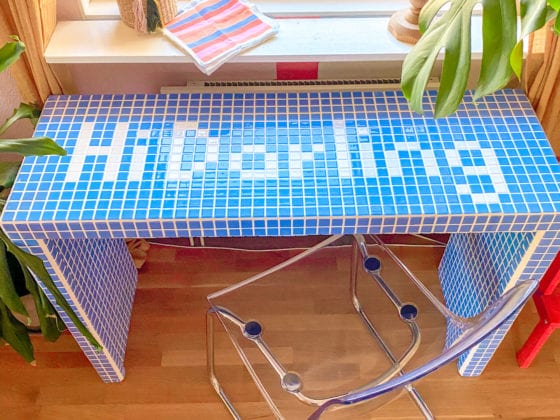Growing up, climate change was something that adults would discuss in an off-hand manner, but I never felt urgency about the issue. It was in college, after moving from rural Kentucky to Chicagoland, that I began to be exposed to the realities of the world. There I learned that climate change is an issue that affects the lives of real people.
I have a potent memory of one of my professors, who regularly traveled to India, telling me stories about women who had to walk miles and miles to collect water and bring it back in buckets on their heads. This image—of women trekking through the dust—would haunt me as I stared at the clean and abundant water pouring from my faucet.
How had I been so consumed with my own life and my own problems for so long? I understood deeply that only the accident of fate had allowed me to be on a college campus with an endless water supply, while women, who are just like me, labored under heavy buckets of murky water.
Women just like me—just as smart and talented—labored under heavy buckets of murky water.
The perceived distance between the effects of climate change and American lives can make it difficult to conceptualize the plight of some of the most vulnerable people worldwide—women. The reality of climate change is resource scarcity, storms and conflict. Women produce more than half of the world’s food and are the primary stewards of water resources, but climate change threatens their ability to fill these rolls.
Resource scarcity leads to forced migration, and, according to the United Nations, 80 percent of people displaced by climate change are women. Refugee camps offer dismal living conditions for all people. However, in these camps, women face the threat of violence and sexual assault.
The International Organization of Migration (IOM) conducted interviews of European refugees in 2017, and 79 percent of respondents answered “yes” to one of four indicators of human trafficking and labor exploitation. For those who are unable to migrate, the United States Nations reports that women are 14 times more likely than men to die from climate-related weather phenomena. Climate change is truly a human rights issue, and even more so, a women’s rights issue.
Climate change is truly a human rights issue, and even more so, a women’s rights issue.
Women are especially vulnerable to environmental degradation. According to a United Nations report on Gender Equality Around the World, women experience higher rates of poverty than men because they more often lack access to income-generating opportunities. Women are often responsible for the material survival of their families. Women also face barriers to gaining political power and often have less education.
Climate change doesn’t create these inequalities. Yet, it worsens already existing gender disparities. Working to decrease inequalities doubles as a way to empower women to enact transformative climate solutions for their own benefit.
Mayesha Alam, an expert of climate and women’s rights at Yale University, put it best, in an interview with Global Citizen, when she said, “It’s really important to emphasize that women aren’t merely helpless victims when it comes to climate change. Their participation and leadership can have transformative effects in their countries and communities.”
Women aren’t merely helpless victims when it comes to climate change.
According to the European Commission, when women are involved in decision-making processes, they are more willing to make sacrifices to reduce emissions, better at planning for disaster recovery, more prone to ratify international environmental treaties and better at conserving local resources.
The rise of underrepresented voices in leadership is just one aspect of the cultural upheaval necessary to transform the systems that are contributing to the demise of our planet. Women, especially women of color, have been advocating for environmental causes for decades. However, we’re just now seeing certain female voices gain global prominence.
If you do a quick Google search on climate leaders, you’ll see names like Greta Thunberg, Alexandria Ocasio-Cortez and Patricia Espinosa. Thunberg, especially, has a potent rhetoric that vocalizes outrage for those who did not cause this crisis but are dealing with the consequences.
I am angry, too, but being angry isn’t enough. I am calling for a new kind of suffragette movement, one that hears the cries of the women being affected by climate change and does something about it.
In a 2019 video interview with teenage Swedish climate activist, Greta Thunberg, Ocasio-Cortez once said, “Hope is not something you have, hope is something you create with your actions.” Although corporations are responsible for the majority of greenhouse gas emissions that contribute to climate change, we need to oppose the false notion that as one person, you cannot make a difference.
Hear the cries of the women being affected by climate change and do something about it.
Here’s how you can make an impact in the gender disparities of climate change:
- Educate yourself and others.
Read books (like those listed on Yale Climate Connection review list) and articles. Follow social media accounts that provide expert insight on climate change, and listen to podcasts like “Mothers of Invention.” Most importantly, spread the knowledge you’re gaining to your friends and family. Climate change has a lot of visibility, but not everyone understands how it is affecting human lives or what they can do about it.
- Start community projects.
Whether you’ve thought about it or not, you are a part of a community where you have influence to enact change. Start a bikeshare or carpool program where you work. Launch a campaign to convince your neighbors to eat more local and plant-based meals. Apply for grants to put solar panels on town buildings or pass out educational materials on recycling. The limit is your own creativity.
- Use your funds.
Consider donating money to development organizations that elevate women, like the Association for Women’s Rights in Development or The Global Gender and Climate Alliance. It will probably take some research to find the right organization for you. Use your purchasing power to support sustainable businesses. Again, this takes a little bit of research (a lot of companies use “sustainable” as a green-washing marketing term), but it can make a huge impact. In a capitalist country, our money is a powerful tool to force businesses and, consequently, political policies to change.
- Vote for representatives that prioritize climate action.
You have the power to vote. This is a privilege, and we can use the privilege to elevate candidates without corporate funding who want to make good on promises for environmental change.











